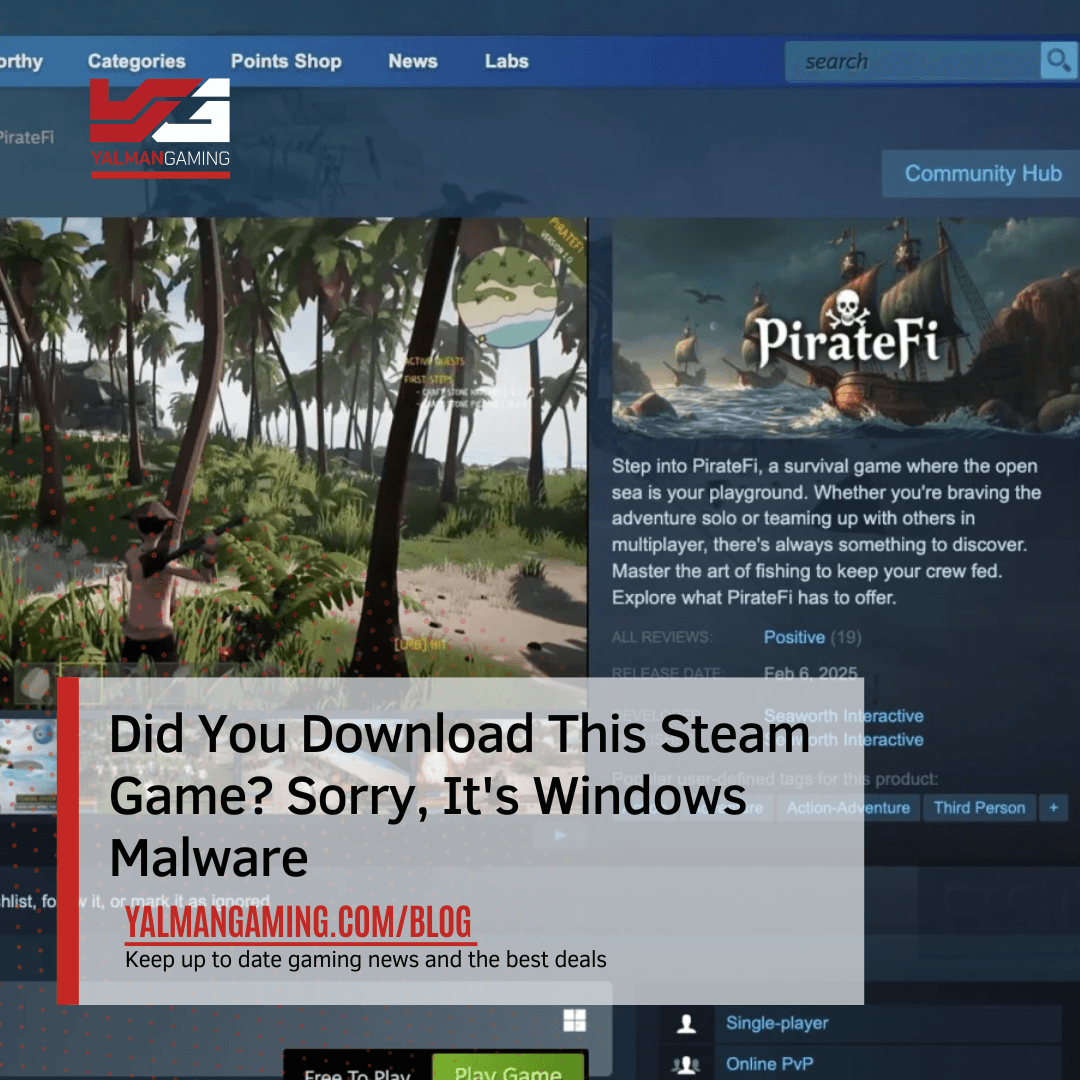PirateFi Game on Steam Caught Installing Password Stealing Malware

PirateFi Game on Steam Caught Installing Password Stealing Malware
Malicious Software Disguised as Steam Game ‘PirateFi’ Compromises User Security
Introduction
In a recent security incident, the free-to-play game ‘PirateFi’ on the Steam platform was discovered to contain malicious software targeting Windows users. This event underscores the importance of vigilance when downloading and installing software, even from reputable sources.
The ‘PirateFi’ Malware Incident
‘PirateFi’ was released on Steam as a free-to-play game, attracting numerous users. However, it was soon identified that the game contained malware designed to steal browser cookies, potentially granting unauthorized access to users’ online accounts. Valve, the company behind Steam, promptly removed the game from the platform and issued warnings to affected users, advising them to perform comprehensive system scans and inspect their systems for unexpected or newly installed software.
Reference: link

PirateFi Game on Steam Caught Installing Password Stealing Malware
Technical Analysis of the Malware
The malware embedded in ‘PirateFi’ is a variant of the Vidar infostealer. Once installed, it operates by extracting sensitive data from the user’s system, including browser cookies, saved passwords, and other personal information. This data is then transmitted to the attacker’s server, enabling them to hijack sessions and gain unauthorized access to various online services.
Reference: link
Impact on Users
The infiltration of malware through ‘PirateFi’ has significant implications:
- Data Theft: Users’ personal information, including login credentials and browsing history, may have been compromised.
- Account Compromise: With access to browser cookies, attackers can hijack sessions, potentially leading to unauthorized activities on users’ accounts.
- System Vulnerabilities: The presence of malware can introduce additional vulnerabilities, making systems susceptible to further attacks.

Impact on Users
Preventative Measures and Recommendations
To safeguard against similar threats, users are advised to:
- Exercise Caution with Downloads: Even on trusted platforms, scrutinize new or lesser-known applications before downloading.
- Maintain Updated Security Software: Regularly update antivirus and anti-malware programs to detect and prevent emerging threats.
- Regular System Scans: Perform frequent scans to identify and remove potential malware.
- Monitor Account Activity: Regularly review online accounts for unauthorized activities and update passwords periodically.
- Stay Informed: Keep abreast of security news to be aware of recent threats and vulnerabilities.

Preventative Measures and Recommendations
Summery
PirateFi Game on Steam Caught Installing Password Stealing Malware: The ‘PirateFi’ incident serves as a stark reminder of the evolving tactics employed by cybercriminals. Users must remain vigilant and proactive in their cybersecurity practices to protect personal information and maintain system integrity.
Read More: Rumored Price tag of GTA 6 Leaves Fans Shocked as 2025 Release
